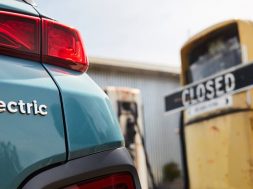
Appropriate policy measures needed to lower the overall lifetime ownership costs of Electric Vehicles
Access to fast charging facilities must be fostered to increase market share of EVs
The Union Minister for Finance and Corporate Affairs, Smt. Nirmala Sitharaman tabled the Economic Survey 2018-19 in Parliament today. The Survey states that Electric Vehicles hold enormous potential for India not only because it is environment friendly but also because India can emerge as a hub of manufacturing of EVs generating employment and growth opportunities. Noting that it may not be unrealistic to visualize one of the Indian cities emerging as the Detroit of EVs in the future, the Survey adds, “Appropriate policy measures are needed to lower the overall lifetime ownership costs of EVs and make them an attractive alternative to conventional vehicles for all consumers”.
Citing the Ministry of Environment, Forest & Climate Change (2018), the Economic Survey says that in India, transport sector is the second largest contributor to CO2 emissions after the industrial sector. Road transport accounts for around 90 per cent of the total emissions in the transport sector in India. Given the large import dependence of the country for petroleum products, it is imperative that there be a shift of focus to alternative fuels to support our mobility in a sustainable manner, the Survey adds.

Reviewing global scenario of EVs, the Survey notes that the market share of electric cars is around 2 per cent in China while it is around 39 per cent in Norway whereas the Indian market share of electric cars is a meagre 0.06 per cent. Citing NITI Aayog, the Survey further notes that, in India, electric two-wheelers have been the major part of EV sales with sales of around 54,800 in 2018. It adds that the electrification of two-wheelers and buses has picked up pace in recent years.
Noting that the market share of EVs increases with the increasing availability of charging infrastructure, the Survey states, “It, therefore, becomes important that adequate charging stations are made available throughout the road networks.” Access to fast charging facilities must be fostered to increase market share of EVs, the Survey adds.
On the impediments to the increased adoption of EVs, the Economic Survey notes, “In India, the limited availability of charging infrastructure seems to be a major impediment to increased adoption of EVs.” Another major impediment is that of time taken for completely charging EVs compared to conventional vehicles, it adds and furthers states, “It is, therefore, an important policy issue to come up with universal charging standards for the country as a whole to enable increased investment in creation of such infrastructure.” The Survey also states, “It is equally important to provide information on public charger to the users of EVs through online maps and other means such as physical signage. This will encourage increased ease of adoption of EVs.”
Also, calling the battery as the heart of any EV, the Survey says, “The development of appropriate battery technologies that can function efficiently in the high temperature conditions in India need to be given utmost importance (NITI Aayog 2018)”.
Citing NITI Aayog, the Economic Survey estimates that if India reaches an EV sales penetrations of 30 per cent for private cars, 70 per cent for commercial cars, 40 per cent for buses and 80 per cent for two and three wheelers by 2030, a saving of 846 million tones of net CO2 emissions and oil savings of 474 MTOE can be achieved. It also provides us an opportunity to grow as a manufacturing hub for EVs provided policies are supportive, the Survey adds.













